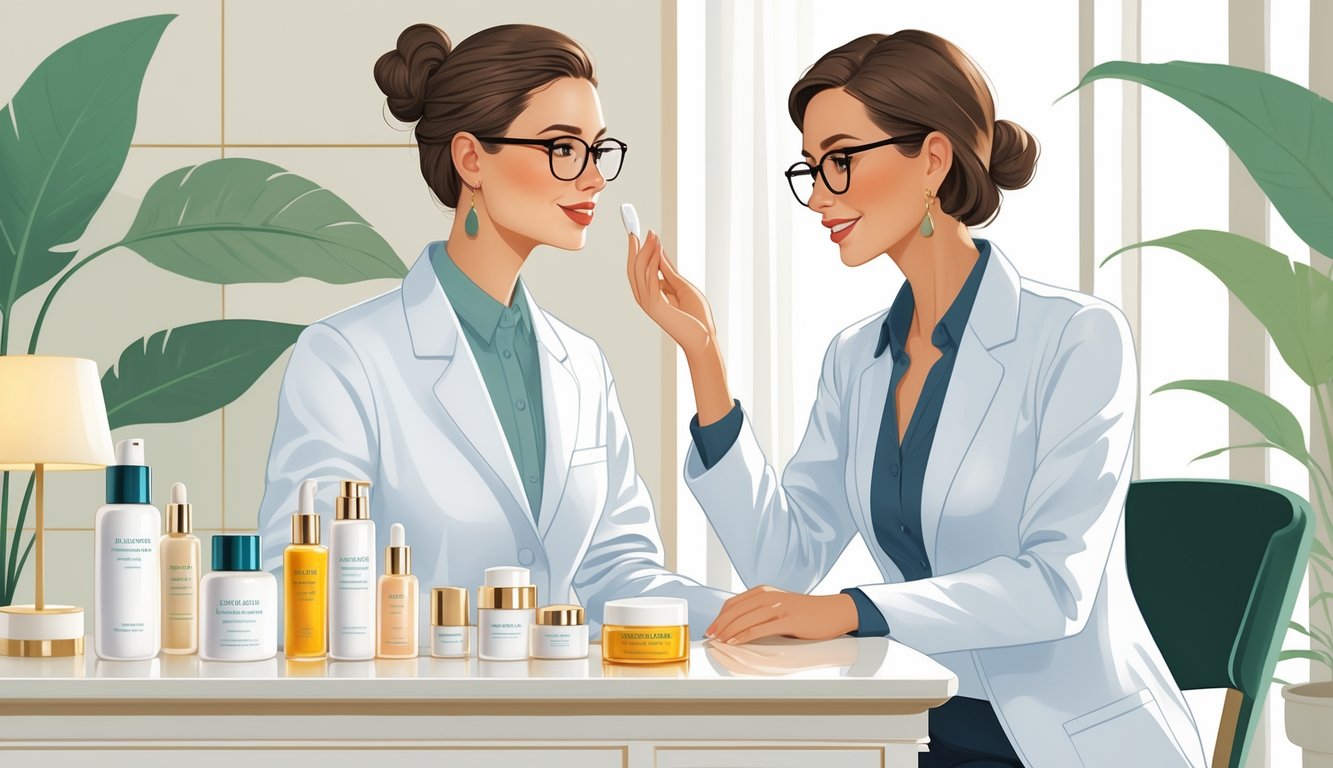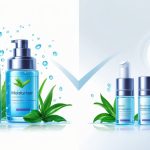Luxury Skincare Secrets Dermatologists Warn Busy Adults Overlook
Honestly, I’ve lost track of how many times I’ve tried to “upgrade” my skincare, convinced some gold-dipped serum would fix my life, only to realize dermatologists are just… kind of bored by all the hype. The stuff people pay for—seriously, gold in a bottle?—makes me wonder if anyone’s actually checking labels or just hypnotized by shiny things. Dr. Sam Bunting has this 13 Dot Technique for sunscreen, which sounds like a chore, but apparently, it’s mostly about not skimping. Most of us skip steps and then wonder why our $200 moisturizer does nothing. Is there some magic mask that erases three nights of insomnia and a week of SPF neglect? If you find one, let me know. I’m not holding my breath.
Dragging my entire bathroom to work? No thanks. And, let’s be real, nobody enjoys layering ten products they hate just because “experts” said so. Every dermatologist I’ve bugged says the same thing: perfect skin doesn’t come from routines you never stick with. Still, people blow rent money on creams, skip the basics, and then act shocked when their skin rebels. Matching actives to your skin, remembering SPF after coffee—are we all just pretending?
Some days, I just stare at my serum until I’m late for the bus. Building a “luxury” routine that works? Feels impossible if you’re missing the actual essentials. Dermatologists keep saying the best tricks are the ones nobody posts on Instagram—like, hey, skipping toner isn’t “self-care,” it’s just lazy. And price? Not the same as “better.” Never was.
Understanding the Basics of Luxury Skincare

By noon, my SPF is gone, and someone’s trying to sell me stem cells in a tiny jar. How did skincare get so complicated? Fancy actives, endless talk about skin types, and “dermatologist recommended” slapped on everything. But, honestly, six hours of sleep and a glass of water do more for me than any gold cream, at least if you ask the last derm I saw.
What Sets Luxury Formulas Apart
I’m not gonna lie, the price tags make me dizzy. And yet, dermatologists like Dr. Mona Gohara keep saying the real difference isn’t the packaging; it’s stuff like delivery systems or ingredient purity. “Micro-encapsulated retinol peptide?” I mean, sure, maybe it’s less irritating, but who’s actually checking the science? Luxury brands in 2025 claim clinical trials, but… peer-reviewed by whom? Their own interns?
And the “experience”—crystals, silk, gold spoons—seriously, who decided skincare was a spa day in a jar? My derm can barely keep a straight face. People act like rubbing caviar on your cheeks cancels out skipping SPF. Figuring out what’s real and what’s just marketing is like assembling IKEA furniture with no instructions. Have fun.
Key Ingredients and Their Benefits
Peptides are everywhere, but does anyone actually know what they do? I don’t. Vitamin C? Only works if it’s stabilized, otherwise it’s just brown goo in a dropper. I’ll trust luxury brands that bother with real concentrations—ascorbic acid, not “sparkling grape water,” thanks. My old mentor used to say that, and she was right.
Algae, squalane, hyaluronic acid, retinol—sure, they’re in everything. But unless you know the dose, it’s a guessing game. Labels never tell you the truth, and half the “clinical studies” contradict each other. Dermatologists just roll their eyes at “clean beauty” claims. Me too, honestly.
Common Skin Types and Unique Needs
Dry, oily, combo, sensitive—labels keep multiplying, and so does the confusion. I see people slathering on hydrating serums and then nuking their skin with oil-control toner, because “my skin changes daily.” Luxury doesn’t mean “one size fits all.” Some peptides only do anything for sun-damaged skin, while alcohol-heavy stuff just makes irritation worse. Dermatologists get headaches over this.
Acne? I’ve seen friends spend a fortune on thick eye creams that do nothing but clog pores. If you’re going to drop cash on luxury, at least patch test. Seriously, don’t be the person calling your dermatologist from an airport with a rash. I’ve been there. It’s not cute.
Why Dermatologists Warn About Overlooked Essentials
I buy a new serum because some celebrity posted about it, then forget sunscreen at lunch. Why are we like this? Dermatologists sigh. Basics get skipped, shelves get cluttered, skin just gets mad.
Misconceptions About High-End Skincare
Gold masks are supposed to erase all my mistakes? Please. Every dermatologist I know just shrugs when I mention $200 creams that “detoxify” or “reset” your microbiome. Ingredient lists? Glycerin, niacinamide, fragrance—nothing new except the price.
People obsess over luxury labels and ignore what matters: gentle cleanser, daily SPF, maybe a retinoid if your skin’s chill with it. An esthetician once told me most “exclusive” oils are just fancy mineral oil. Dr. Michelle Henry keeps pointing out that women chase hype instead of actual skin health.
Dermatologists wish people cared more about the boring stuff—moisturizing, washing your face, reapplying sunscreen. Doesn’t matter if it’s caviar or gold, you can’t skip the basics. Nobody wants to hear it, but it’s true.
Ignoring Professional Advice
Why are we listening to TikTokers with ring lights instead of board-certified dermatologists? I’ve seen people waste years (and way too much money) following influencer routines, when one session with a pro could’ve saved them so much hassle.
Half the derms I know are confused why people pay for consults, then ignore the advice. They get told: bland cleanser, ceramide moisturizer, SPF 30. Next day? Back to twelve steps, acid peels, and random K-beauty hauls.
You’d think we’d get it by now: simple, consistent routines work. Most problems? Not from missing a miracle serum—just from skipping the basics. Stats say 70% of adults skip the boring stuff for influencer fads, according to this article. Not surprised.
Risks of Overcomplicating Your Routine
I tried too many products at once. My skin freaked out. Suddenly, my “routine” was a puzzle: hyaluronic acid, vitamin C, peptides, exfoliating toner, two sunscreens. Nobody warned me irritation stacks up fast. Dermatologists see it all the time—contact dermatitis from layering stuff that was never meant to be mixed.
Add more, lose consistency. My skin barrier fell apart after one too many acids. Instead of looking “glowy,” I looked like a warning label. Even top derms say to ditch the clutter and focus on prevention.
Dr. Samantha Karlin wrote this press release about social media routines causing swelling, burning, acne—you name it. More steps, more confusion, more wasted money. At this point, I’d rather have one boring routine than keep chasing trends. But, let’s be honest, I’ll probably still post a mask selfie next week.



